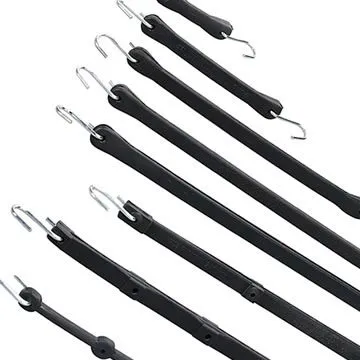- Afrikaans
- Albanian
- Amharic
- Arabic
- Armenian
- Azerbaijani
- Basque
- Belarusian
- Bengali
- Bosnian
- Bulgarian
- Catalan
- Cebuano
- Corsican
- Croatian
- Czech
- Danish
- Dutch
- English
- Esperanto
- Estonian
- French
- German
- Greek
- Hindi
- Indonesian
- irish
- Italian
- Japanese
- Korean
- Lao
- Malay
- Myanmar
- Norwegian
- Norwegian
- Polish
- Portuguese
- Romanian
- Russian
- Serbian
- Spanish
- Swedish
- Thai
- Turkish
- Ukrainian
- Uzbek
- Vietnamese
नवम्बर . 06, 2024 13:42 Back to list
Innovative Gyproc PVC Tiles for Modern Interior Design Solutions
Exploring Gyproc and PVC Tiles A Comprehensive Overview
In modern construction and interior design, the choice of materials plays a crucial role in determining the aesthetic appeal and functionality of a space. Among the myriad of options available, Gyproc and PVC tiles have gained significant popularity for their unique properties and benefits. This article delves into the characteristics, advantages, applications, and maintenance of Gyproc and PVC tiles, offering insights into why they are favored in contemporary building projects.
What are Gyproc Tiles?
Gyproc, a brand name for gypsum board, is widely recognized in the construction industry for its lightweight and versatile properties. Gyproc tiles, made from gypsum plaster, are typically used as part of interior wall and ceiling systems. These tiles are designed to create smooth surfaces and can be finished with paints or wallpapers to enhance the interior decor.
Gyproc tiles are available in various thicknesses and sizes, making them adaptable to different wall specifications and design preferences. They are known for their excellent sound insulation properties, moisture resistance (when treated), and fireproof characteristics. This makes Gyproc tiles an ideal choice for residential homes, commercial buildings, and even industrial spaces.
What are PVC Tiles?
PVC (polyvinyl chloride) tiles, on the other hand, are a type of flooring material made from synthetic plastic. These tiles are flexible, durable, and come in a wide array of colors, patterns, and textures, allowing homeowners and designers to achieve any desired aesthetic. PVC tiles are commonly used for floors, walls, and even ceilings, providing functional and decorative solutions for various spaces.
One of the key advantages of PVC tiles is their water resistance, which makes them suitable for high-moisture areas like kitchens, bathrooms, and basements. Additionally, they are easy to clean and maintain, making them an excellent option for high-traffic environments, including commercial settings.
Advantages of Gyproc Tiles
1. Ease of Installation Gyproc tiles are lightweight and easy to cut, making them straightforward to install. This can significantly reduce labor costs and installation time.
2. Versatility These tiles can be used in various applications, from residential to commercial spaces. They can also be easily customized with different finishes.
3. Environmental Benefits Gypsum is a natural material, and many Gyproc products are designed to have a minimal environmental impact. They can also contribute to better indoor air quality by being low in volatile organic compounds (VOCs).
4. Thermal and Acoustic Insulation Gyproc tiles help regulate indoor temperatures and reduce noise transmission, enhancing the overall comfort of a space.
gyproc pvc tiles

Advantages of PVC Tiles
1. Durability PVC tiles are incredibly durable and can withstand the wear and tear of daily use. They are resistant to scratches, dents, and stains, which is particularly important in commercial settings.
2. Water Resistance The inherent water-resistant properties of PVC tiles make them an excellent option for areas prone to moisture, providing longevity and preventing damage.
3. Aesthetics With a vast selection of designs and colors available, PVC tiles can mimic the appearance of natural materials like wood or stone without the associated maintenance concerns.
4. Cost-Effectiveness Generally, PVC tiles are more affordable than many other flooring options, offering a budget-friendly solution without compromising on quality.
Applications of Gyproc and PVC Tiles
Gyproc tiles are predominantly used in wall and ceiling applications. They are perfect for creating seamless partitions, enhancing acoustics in auditoriums or conference rooms, and providing a smooth surface for decorative finishes. Their fire-resistant properties also make them a favored choice for commercial applications, such as offices and schools.
PVC tiles, with their versatility, are utilized extensively in both residential and commercial flooring applications. They are ideal for living rooms, offices, retail spaces, and hospitality environments. Their resistance to water makes them particularly popular in kitchens and bathrooms.
Maintenance and Care
Both Gyproc and PVC tiles require minimal maintenance to keep them looking their best. Gyproc tiles can be cleaned with a damp cloth and should be inspected regularly for any signs of damage. If moisture issues arise, prompt attention is necessary to prevent mold growth.
PVC tiles are easily maintained by sweeping or vacuuming regularly, followed by mopping with a mild detergent solution. Their water-resistant nature means spills can be cleaned up easily, maintaining the tiles’ appearance and hygiene.
Conclusion
In conclusion, both Gyproc and PVC tiles offer unique advantages that cater to diverse aesthetic and functional needs in construction and design. Whether you are renovating your home or designing a new commercial space, considering Gyproc and PVC tiles can lead to practical and visually appealing results. Their combination of durability, ease of maintenance, and aesthetic versatility makes them essential materials in the modern building landscape.
-
Mineral Fiber Ceiling Tiles Embossed Surface PatternNewsAug.05,2025
-
Mineral Fiber Board Xingyuan Vision for Better SpacesNewsAug.05,2025
-
Drop Down Ceiling Tile Office Use FitNewsAug.05,2025
-
PVC Gypsum Ceiling White Base ColorNewsAug.05,2025
-
Access Panel on Ceiling Xingyuan Integrity EthicNewsAug.05,2025
-
Ceiling Trap Doors Fire Resistant DesignNewsAug.05,2025







